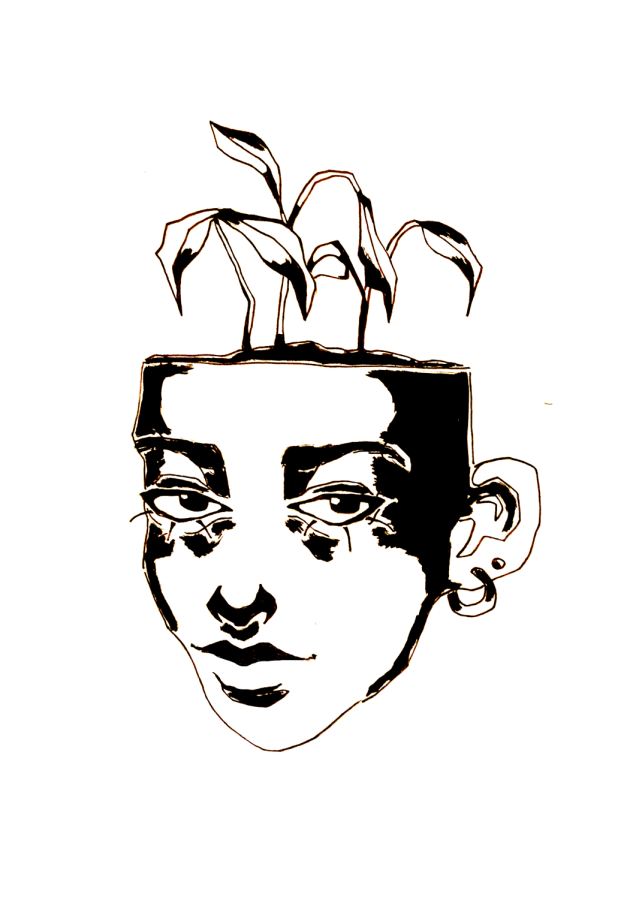Womanly Woes
Mental health is a particularly prominent aspect of our lives, with many people suffering different forms of mental illnesses. These conditions can affect anyone to varying degrees of severity. However, studies show that men and women do not always experience mental illnesses the same way. Both biological and social influences can result in influence and result in differences in mental health problems between the two sexes.
Depression and anxiety, as well as other mental health issues, are more common in women. Approximately 10% of women have depression, compared to the 5.5% of men suffering from the same condition, and according to the American Psychiatric Association, women are twice as likely as men to experience generalized anxiety disorder or any type of panic disorder. Eating disorders are three times more common in women and borderline personality disorders are twice as common. Besides that, women are also more likely to experience PTSD. According to the National Center for PTSD, around 10% of women have experienced PTSD at some point in their lives compared to 4% of men. Furthermore, a study done by the World Health Organization (WHO) concluded that 29% of women are treated for mental health disorders, a large contrast to the mere 17% of men and that women are far more likely to be prescribed psychotropic medications.
For certain mental illnesses, there are biological causes to why women are more likely to experience them. As women experience more hormonal differences, these changes and fluctuations can trigger forms of mental illnesses, however, there are also other causes. An example of this is perinatal depression (PND). PND is a type of depression which can occur to women during or after pregnancy and about 1 in 10 women experience it. Even though it is not as common, PND can also be experienced by their partner. Similarly, events such as menopause can affect a woman’s mental health. Menopause can also come with symptoms such as anxiety and mood swings. This is due to the changing levels of hormones with menstruation coming to an end. There are certain things that can increase the chance of menopause affecting mental health such as having a history of depression, having bipolar disorder, and having schizophrenia. Women can also experience symptoms from Premenstrual Syndrome (PMS) including fluctuating emotions, headaches, and bloating. Women who have been diagnosed with depression or anxiety may experience symptoms of PMS that are more severe. Moreover, Premenstrual Dysphoric Disorder (PMDD) can also have similar symptoms. PMDD is similar to PMS but it has more severe symptoms such as extreme mood swings, tension, irritability, and severe depression. Anxiety is another mental illness that can develop due to biological reasons. One of the reasons for this is the fact that testosterone levels are much lower in women which is a hormone that has been found to help with easing the symptoms of anxiety.
On the other hand, the effects of society can also cause mental health issues in women. The cause of depression, especially in teenage girls, can come from many sources. These can include weight issues, conflicts in relationships, bullying, academic problems, and pressure as well as witnessing or experiencing an act of violence like physical or sexual abuse. Likewise, even though there may be hormonal causes behind anxiety in women, it can also originate from social causes. The social stressors of raising children but having a job at the same time can cause a lot of pressure. Women may feel pressured to be perfect in both roles which result in stress and perhaps other mental illnesses. This is similar to the pressure that teenagers feel to do well both inside and outside of the classroom. As mentioned before, eating disorders are also more likely to occur in young women. In today’s society, women are held to unrealistic beauty standards, especially with the role of social media in our lives. This is not only evident in social media, but also in other everyday things like movies and advertisements. The result of this is a sense of pressure on girls and women to look like this image, which can lead to different types of eating disorders. Lastly, post-traumatic stress disorder (PTSD) is also more common in women as a result of societal experiences. Common things that can cause PTSD include rape, sexual assault, and sexual abuse as a child.
Based on all this data, there is clearly a difference in mental health conditions between men and women due to biological and social causes. It is important to be aware of these mental illnesses and ask for help if needed.
Hey, I’m Petra, a Year 12 student. I enjoy writing articles for the High about any topics that interest me. I really love reading fantasy books, or just...





